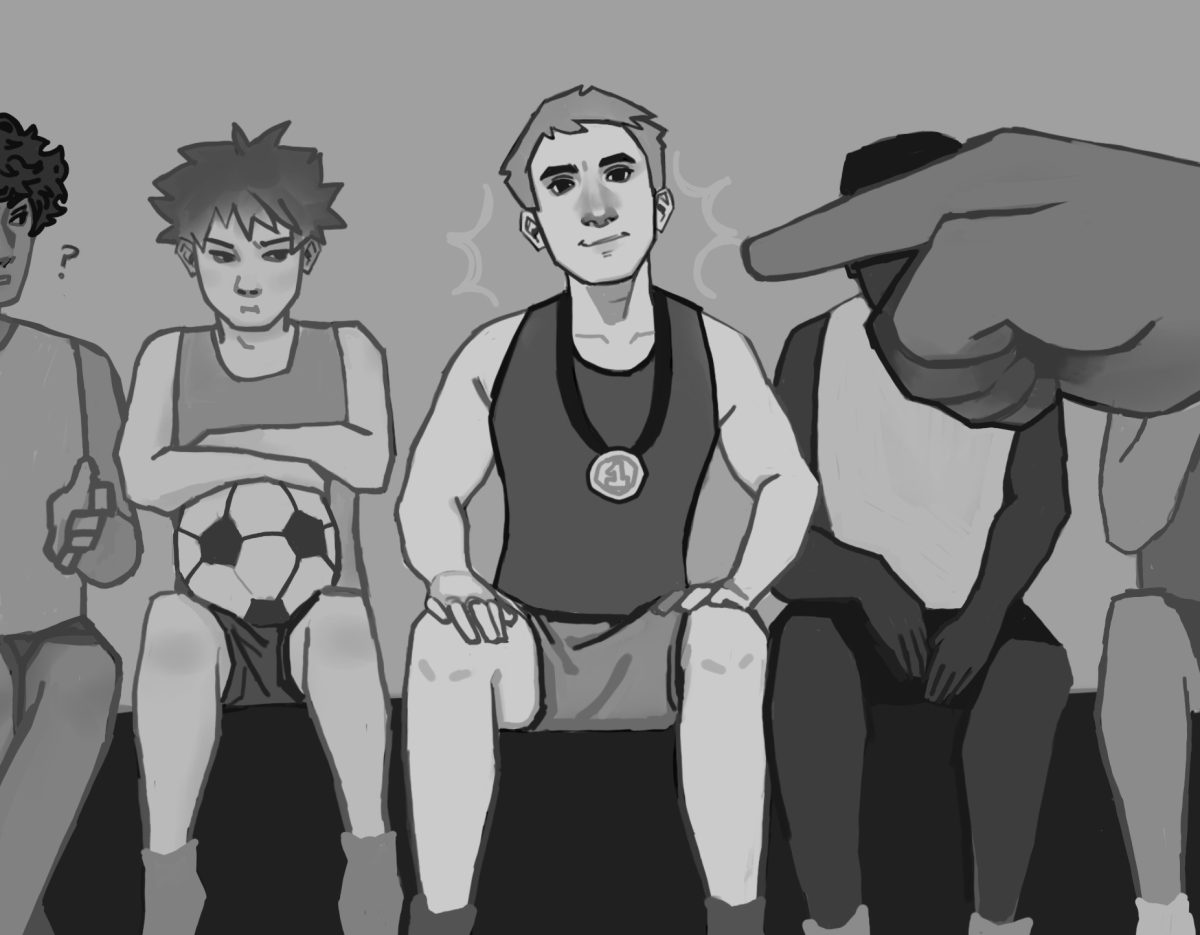Favoritism in sports, whether overt or subtle, has been an issue throughout the history of sports, many feel. The idea of favoritism appears in diverse forms, including biased officiating, unequal opportunities for athletes and nepotism within sports organizations.
Numerous SCHS athletes have experienced favoritism in various athletic environments. Former soccer player and junior Lilyanna Chavarria said she faced discrimination and witnessed a clear act of favoritism.
“You could tell that the coach had certain players that they believed in more than others, certain players that they cared about, and others who they didn’t care about,” Chavarria said.
Three-season athlete and sophomore Nolan Gallo claimed he experienced similar instances of favoritism on a few occasions. He mentioned the unappreciation and low spirits that favoritism brings, commenting that nepotism is an act of favoritism.
“The son of one of the coaches has always been on the team, so that could be one, that the coach wants to have their son play,” Gallo said. “We (teammates) don’t like it. We talk behind each other and how we don’t appreciate it.”
Physical education teacher Brett Hall played baseball at West Valley College and witnessed a favoritism act while attending. Hall said West Valley’s coach at the time had broken a promise to certain players and had them doing unnecessary labor work.
“He was having ‘red shirts’ – which is somebody that doesn’t play, so they just have more of an academic year – they show up and they practice for the team, but they don’t play. The ‘red shirts’ are notoriously used as, ‘Hey, go do the drudge work because nobody wants to do it, and you’re not a player. You’re a ‘red shirt.’’” Hall said. “He was sending them to his house to have them work on his house, which is absolutely absurd. He would have players work on his house, promising them playing time, which they never saw.”
According to volleyball player and junior Alina Da Silva, favoritism can lead to many consequences. She believes a lack of recognition can make an athlete feel like there is no use to participate in a sport.
“Those people that aren’t getting that same attention from their coaches are losing the love for the sport,” Da Silva said. “You’re not getting the technique skill you need because the coaches are not providing that support.”
Similarly, Hall believes an athlete can lose the appreciation for their sport due to little recognition from coaches. He also added that no improvement being seen leads to an athlete leaving their sport.
“They’re possibly going to quit and possibly end their career earlier than they should’ve because they feel they’re not getting the benefit of the doubt, not given any resources, and not being given a chance,” Hall said. “It’s not giving the athlete an ability to grow within whatever system they’re in, and when somebody doesn’t see growth, motivation just taints.”
Additionally, Chavarria witnessed acts of favoritism during drills at practice. She feels favoritism is an excuse for coaches to release their thoughts and feelings on players they are not fond of.
“If you mess up on a drill, you’ll get screamed at, whereas if another girl had done the same
thing and messed up, they wouldn’t have gotten screamed at,” Chavarria said. “It feels like an outlet for the coach to get their anger out on the unfavored players.”
Unlike some, Gallo believes favoritism is harder to see in sports. He thinks that some athletes in particular are not able to specifically point out a clear act of favoritism. He also finds that athletes use favoritism as an excuse if they are not being played.
“It’s kind of hard to say. You never really know if it’s favoritism. A lot of people point to that as an excuse, but you can never know,” Gallo said. “You can’t be a hundred percent someone’s being favored unless the coach tells you.”
For Chavarria and other athletes, they feel unworthy of partaking in a sport, which can further lead to more complications, such as a decline in mental health. Chavarria said that being unfavored creates horrible feelings and creates hatred toward that specific sport.
“The biggest part of it was losing a lot of confidence from it, and it’s kind of demoralizing because you’re unfavored and treated differently than everyone else,” Chavarria said. “It really hurts your feelings and makes you not want to be in that environment.”


